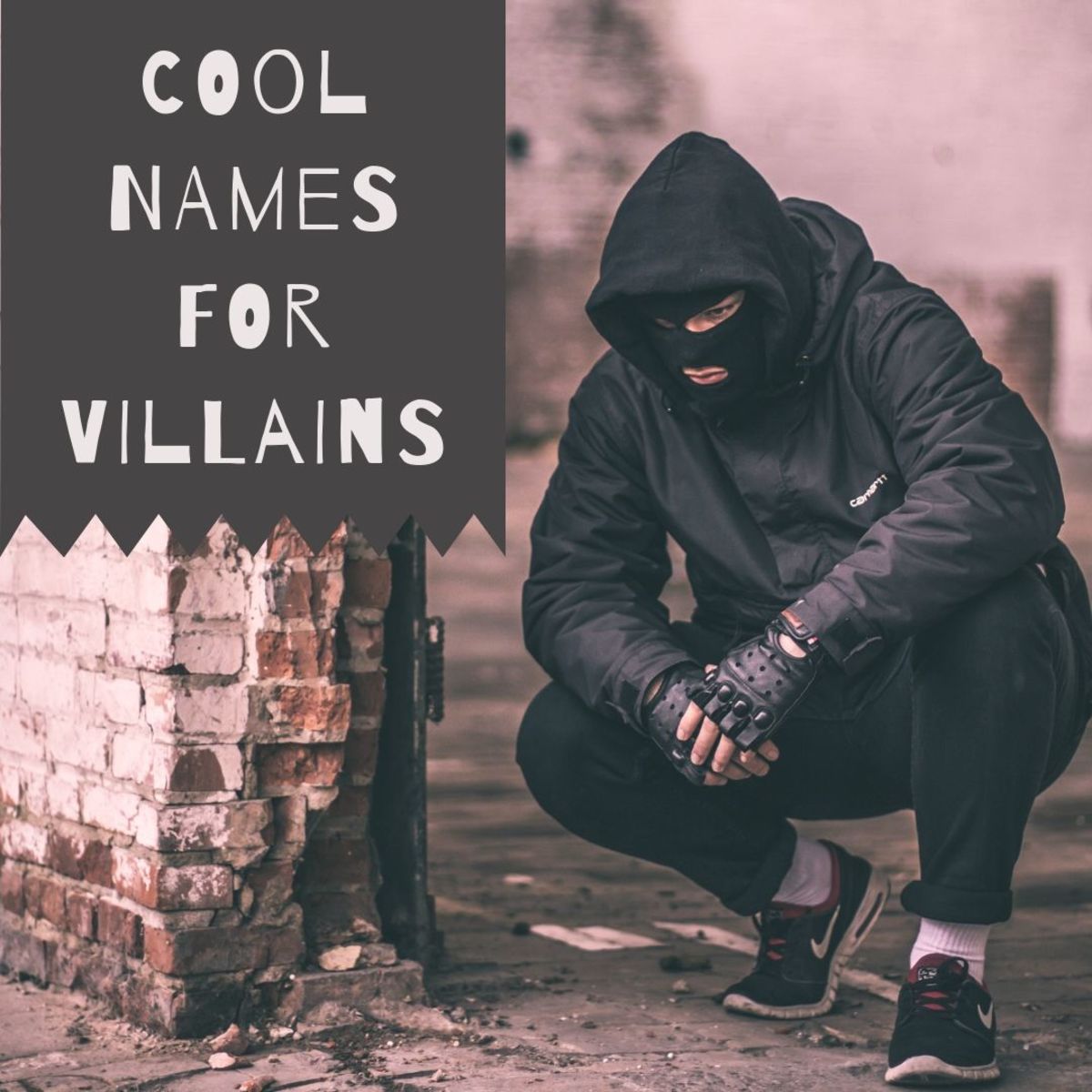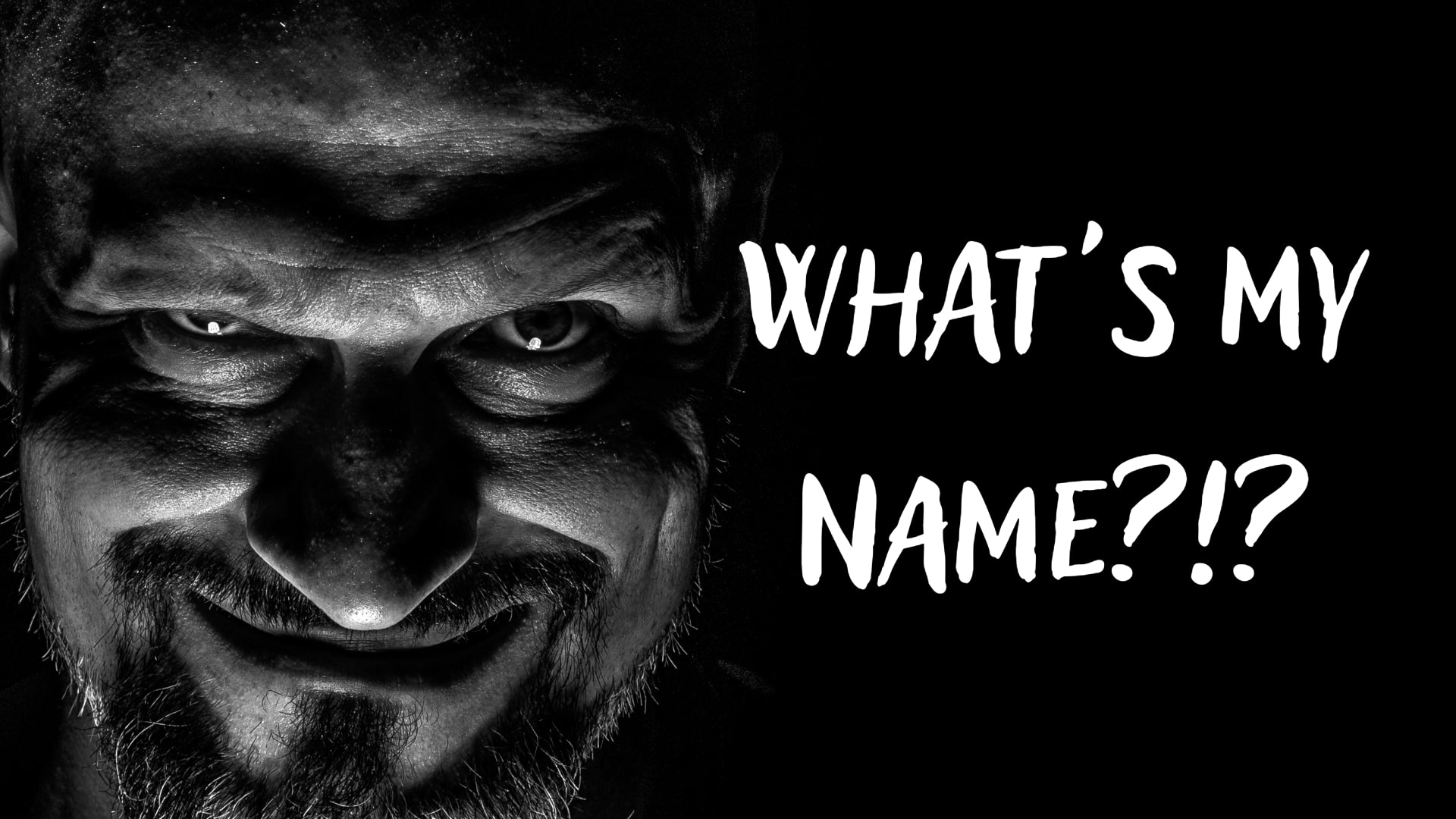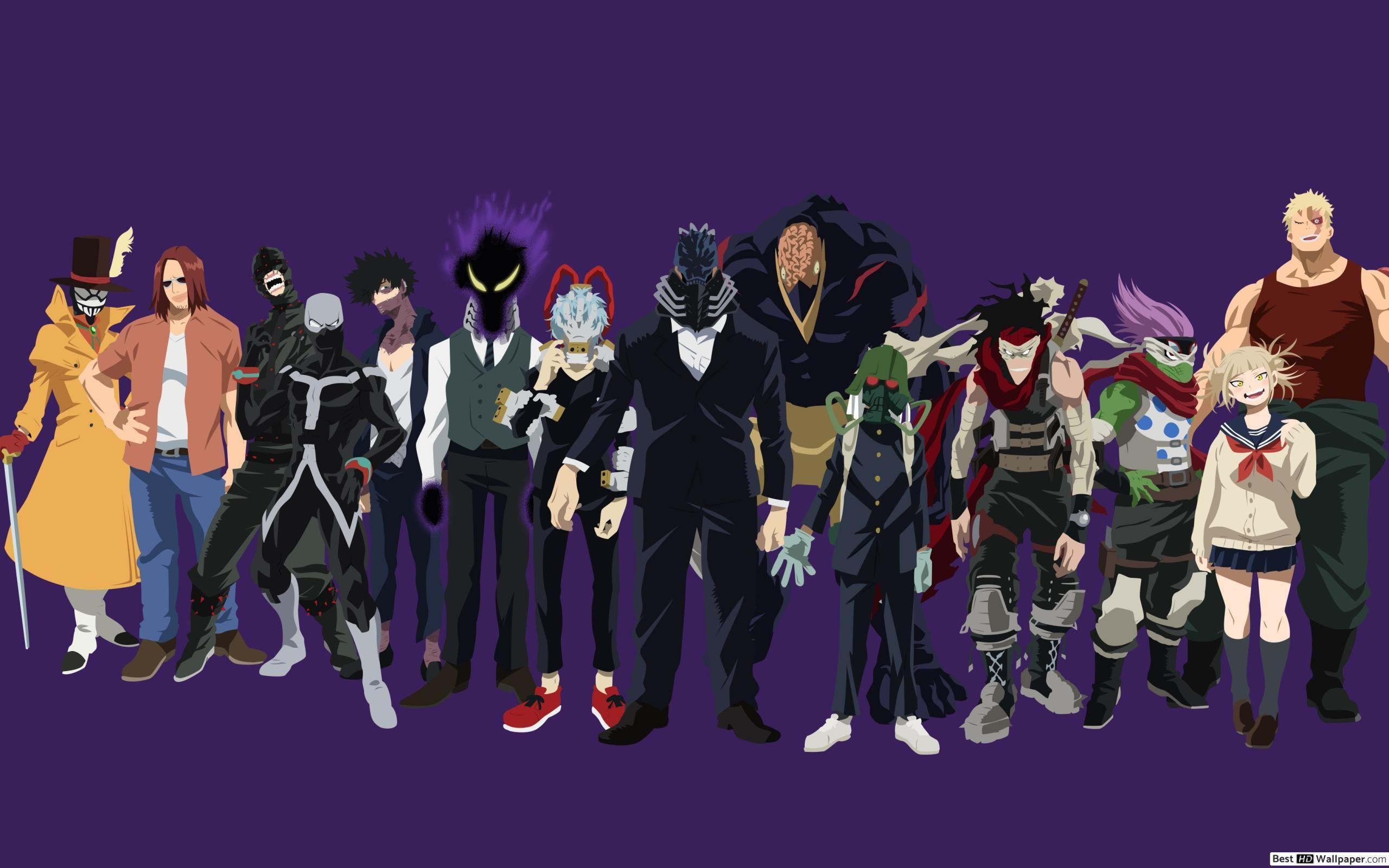Unleashing Dark Creativity: The Ultimate Guide To Villain Names
Let me tell you something, folks. When it comes to crafting a truly unforgettable villain, it all starts with the name. That's right—villain names carry an immense power that can either make or break the character. You see, a good villain name doesn’t just identify the character; it sets the tone, creates an aura, and lets the audience know they’re dealing with someone who means business. Whether it's a name dripping with menace or one that plays on irony, the right villain name can send chills down your spine before the character even steps into the spotlight.
In the world of storytelling, a great villain isn’t just someone who opposes the hero. No, they’re the ones who challenge the hero, push the limits, and often end up being the most memorable part of the story. And it all begins with that name. Think about it—would Darth Vader be half as intimidating if his name was, say, Billy the Good Guy? Exactly. The name carries weight, and that’s what we’re diving into today.
Now, if you’re a writer, a gamer, or just someone who loves a good villain, this guide is for you. We’re going to explore the art of crafting epic villain names, share some tricks of the trade, and maybe even spark some inspiration for your next big bad. So, buckle up, because we’re diving headfirst into the dark side of creativity.
Why Villain Names Matter
Okay, let’s get real here. A villain’s name isn’t just a label—it’s a weapon. A well-crafted name can set the stage for the character’s entire persona. It tells us who they are, what they stand for, and sometimes even hints at their ultimate plan. For example, the name "Voldemort" doesn’t just sound scary—it sounds like a force of destruction. It’s not just a random collection of letters; it’s a sound that resonates with fear and power.
Names also play a crucial role in world-building. In fantasy and sci-fi, the right name can ground a character in their universe. Think about it—would Gandalf be as iconic if his name was Steve? Probably not. The same goes for villains. A name like "Sauron" feels ancient, otherworldly, and menacing. It fits perfectly into the lore of Middle-earth, making him feel like a natural part of that world.
Breaking Down the Impact of Villain Names
Let’s break it down a little further. When we talk about the impact of villain names, we’re talking about more than just sound. We’re talking about connotation, symbolism, and even cultural significance. For instance, the name "Lex Luthor" doesn’t just sound smart and calculating—it also carries a certain gravitas. The "Lex" part sounds like "lexicon," which hints at knowledge and intelligence, while "Luthor" sounds like "lethal," giving us a sense of danger.
- Unveiling The Truth Behind Talissa Smalley Leaked A Deep Dive
- Unveiling The Mystery The Marietemara Leaked Controversy
And let’s not forget about the psychological effect. Studies have shown that people respond differently to certain sounds and syllables. Names with hard consonants, like "K" and "T," tend to sound more aggressive, while softer sounds, like "S" and "M," can feel more soothing. This is why you’ll often see villains with names full of sharp, harsh sounds. It’s not by accident—it’s by design.
Key Elements of a Great Villain Name
So, what makes a great villain name? Well, there are a few key elements to consider. First, it needs to be memorable. A good villain name sticks in your mind long after the story is over. Second, it needs to fit the character. If your villain is a tech genius, a name like "Dr. Octopus" works perfectly. But if they’re a medieval sorcerer, you might want to go with something more timeless, like "Morgoth." Lastly, it needs to have a certain je ne sais quoi—a little something extra that makes it stand out.
Sound and Rhythm
Sound and rhythm are crucial when crafting a villain name. Think about how the name rolls off the tongue. Does it have a certain cadence? Does it feel heavy or light? For example, the name "Thanos" has a slow, deliberate rhythm that matches the character’s imposing presence. On the other hand, a name like "Joker" is quick and sharp, reflecting the character’s chaotic nature.
Meaning and Symbolism
Meaning and symbolism can add depth to a villain name. Take "Voldemort," for instance. The name itself is derived from French, meaning "flight of death." That’s some serious symbolism right there. It gives us insight into the character’s obsession with immortality and his willingness to destroy anything in his path. Another great example is "Darth Vader," which translates to "Dark Father" in Dutch. Talk about foreshadowing!
How to Create Compelling Villain Names
Now that we’ve covered the basics, let’s talk about how to create compelling villain names. It’s not as easy as it sounds, folks. You can’t just slap together a few random words and call it a day. No, it takes thought, creativity, and sometimes a little bit of madness. Here are a few tips to get you started:
- Draw inspiration from mythology and history. Names like "Hades," "Cerberus," and "Nero" have a timeless quality that works perfectly for villains.
- Play with language. Mix and match words from different languages to create something unique. For example, "Dracula" comes from the Romanian word for "dragon," giving the character a mythical edge.
- Experiment with prefixes and suffixes. Adding "Dark," "Shadow," or "Void" to a name can instantly give it a sinister vibe.
- Think about the character’s backstory. Does their name reflect their origin? Their goals? Their flaws?
Common Mistakes to Avoid
Before we move on, let’s talk about some common mistakes to avoid when creating villain names. One big one is making the name too long or complicated. Sure, "The Grand Overlord of Destruction and Mayhem" sounds impressive, but it’s not exactly easy to remember. Another mistake is going overboard with the symbolism. While a little meaning can go a long way, too much can make the name feel forced or contrived.
The Psychology Behind Villain Names
Here’s where things get really interesting. The psychology behind villain names is fascinating. As humans, we’re hardwired to respond to certain sounds and patterns. For example, studies have shown that people tend to associate sharp, hard sounds with danger and aggression. That’s why you’ll often see villains with names full of "K"s, "T"s, and "D"s. On the flip side, softer sounds like "S" and "M" tend to feel more approachable, which is why you don’t see many villains with names like "Sammy" or "Molly."
Sound Symbolism in Action
Sound symbolism is a powerful tool when it comes to villain names. It’s the idea that certain sounds carry inherent meaning. For instance, the "S" sound often evokes images of snakes, which can feel sneaky or deceptive. That’s why you’ll see villains like "Snidely Whiplash" or "Severus Snape." Meanwhile, the "K" sound is associated with sharpness and precision, making it perfect for characters like "Kronos" or "Katana."
Real-World Examples of Epic Villain Names
Let’s take a look at some real-world examples of epic villain names. These are the ones that stick with us long after the credits roll. First up, we have "Hannibal Lecter." Now, that’s a name that exudes sophistication and danger. It’s not just a random collection of letters—it’s a name that tells us everything we need to know about the character. Next, there’s "Magneto." Short, sharp, and to the point, this name perfectly captures the character’s magnetic powers and commanding presence.
Lessons We Can Learn
What can we learn from these names? Well, for starters, they’re all memorable. They’re easy to say, easy to remember, and they carry a certain weight. They also fit the characters perfectly. Hannibal Lecter’s name sounds intelligent and cultured, while Magneto’s name is short and powerful, just like the character himself. These names aren’t just labels—they’re extensions of the characters themselves.
Tips for Writers and Creators
So, you’re a writer or creator looking to craft the perfect villain name. Here are a few tips to help you out:
- Start with a list of adjectives that describe the character. Are they cunning? Ruthless? Mysterious? Use those words as a jumping-off point.
- Experiment with different sounds and syllables. Say the name out loud. Does it sound right? Does it feel like it fits the character?
- Don’t be afraid to mix and match. Sometimes the best names come from combining elements of different languages or cultures.
- Test the name on others. Ask friends or colleagues what they think. Does it evoke the right emotions? Does it sound memorable?
Common Pitfalls to Watch Out For
As we mentioned earlier, there are a few common pitfalls to watch out for. One big one is making the name too generic. Sure, "Evil Guy" is easy to remember, but it’s not exactly inspiring. Another pitfall is going too far in the other direction and making the name overly complex. Remember, the goal is to create something that feels natural and fits the character.
Conclusion: Naming the Perfect Villain
And there you have it, folks. The art of crafting the perfect villain name isn’t just about slapping together a few random words—it’s about creating something that feels authentic, memorable, and powerful. Whether you’re drawing inspiration from mythology, playing with language, or experimenting with sound and rhythm, the key is to find a name that fits the character and their story.
So, the next time you’re crafting a villain, take a moment to think about their name. Ask yourself: Does it sound right? Does it feel like it belongs? And most importantly, does it make you shiver just a little bit? Because if it does, you might just have a winner on your hands.
Now, it’s your turn. Got any favorite villain names? Or maybe you’ve got a story about a name that didn’t quite work out? Drop a comment below and let’s chat. And if you found this guide helpful, don’t forget to share it with your fellow creators. Until next time, keep those pens moving and those brains churning!
Table of Contents
- Unleashing Dark Creativity: The Ultimate Guide to Villain Names
- Why Villain Names Matter
- Breaking Down the Impact of Villain Names
- Key Elements of a Great Villain Name
- Sound and Rhythm
- Meaning and Symbolism
- How to Create Compelling Villain Names
- Common Mistakes to Avoid
- The Psychology Behind Villain Names
- Sound Symbolism in Action
- Real-World Examples of Epic Villain Names
- Lessons We Can Learn
- Tips for Writers and Creators
- Common Pitfalls to Watch Out For
- Conclusion: Naming the Perfect Villain
- Discovering The World Of Emmi Sellers A Journey Of Passion And Creativity
- Karlye Taylor The Allure And Intrigue Behind The Karlye Taylor Nude Phenomenon

350+ Cool Villain Names Being Bad Is More Fun Than Being Good HobbyLark

Villain Name Generator Make It Super Easy

My Hero Academia Villains Wallpapers Top Free My Hero Academia